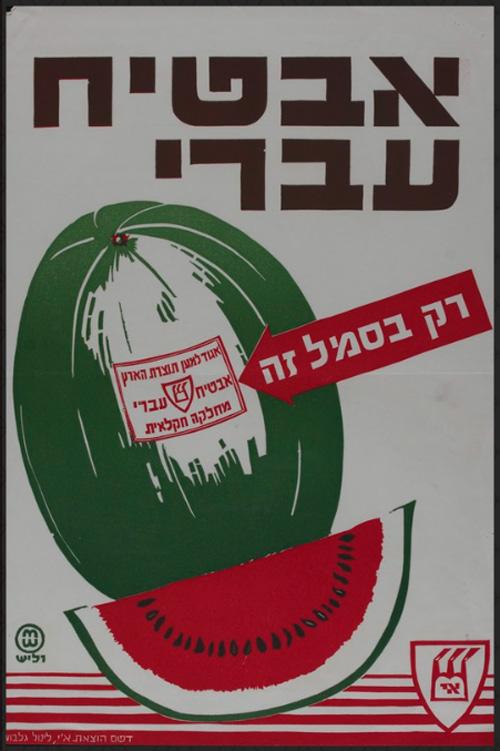Hebrew translation:
Buy Hebrew Melons The caption for this poster currently at the website of the Israeli Ministry of Foreign Affairs (MFA) reads as follows: "Farm products of the Jewish settlements in the Land of Israel were pitted in a stubborn struggle against fresh produce from local Arabs and neighboring countries. The very existence of the Jewish settlements’ agriculture and industry was at stake. Watermelons were one of the fruits that needed protection against foreign products." Source: “Images of A State in the Making,” Israeli Ministry of Foreign Affairs website
______________________________________________________________________
"All cuisines are a product of migration, cultural exchanges, colonialism and of course, trade. Cuisines, therefore, are not only influenced by, but are directly implicated in historical changes, political and ideological shifts and more obviously, economic considerations. A case in point is that of Israel and Lebanon and their ‘war over hummus‘. Israel, in forging a national identity, has choosen to focus positively on the biblical period of Jewish history, fostering a closer connection with the land. This is reflected in the local products‘ campaign of the 1920s which resulted in what Schwartz (quoted in Raviv 2002) termed ‘Zionism in the kitchen’. Purchasing food produced locally by Jewish labour, became an act of patriotism reflected in designations such as Hebrew bananas, Hebrew milk, Hebrew watermelon etc. This nationalizing of food served as a unifying factor internally. By boycotting produce involving Arab labour, it also identified and then proceeded to ignore, the existence of ‘the other’."
Source: Nationalism and Nature

